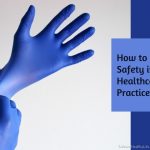
Image Source: Pixabay
Medical situations are not confined to an 8 to 5 work schedule, and there are times when people need to seek medical attention beyond regular hours. After-hour service is not a one-size-fits-all mechanism, and if you are looking into it, you’ll do well to survey which type can fulfill your needs without you sacrificing too much.
Australians have to know the different after-hour healthcare services available to them, and what kind of intervention each service is best suited for. In other words, before you choose which options to rely on, align your medical need with the service’s potential to appease it. The 4 general classifications that you can follow are emergency medical cases, unexpected non-emergency cases, a need for advice on health issues, and a need for medication, medical supplies, or advice on minor injuries. Here’s a briefer on what each option will entail and what situations best call for each. (See also: 5 Technologies and Their Transformational Impact on Healthcare Delivery)
- Emergency Cases. Emergency cases that transpire after hours are best left to ambulatory services. Paramedics are best equipped to rush to your location immediately, administer emergency treatment, and transfer the patient to the hospital if further intervention is needed. In case of emergencies like severe pain, uncontrollable bleeding, loss of breath, loss of consciousness, or severe allergic reactions, call 000.
- Unexpected Non-Emergency Cases. If you require medical assistance after office hours but for a case that is not life-threatening, you have options such as medical house calls and after-hours clinics available to you. Seeking these options may prove to be more convenient on your part, as well as on the part of the medical staff who are overloaded in the emergency room.
- On-call doctors. There is now a significant number of general practitioners (GPs) administering their services via medical house call. Booking the said service is as simple as searching for an after-hours GP online, contacting a reputable healthcare provider, and confirming an appointment in one’s residence. This is an especially helpful option if the persons seeking medical care are school-aged children, elderly, or persons with disability. Medical house calls ensure that they get the treatment that they need without being unsupervised for an extended period of time and without being exposed to the additional immunity threats present in a hospital.
- After-hours clinics. For those unwilling to compromise their work schedule in order to be examined during office hours but who are otherwise all right with receiving care in a clinic setting, there is the option of going to the nearest local after-hours clinic. Call up a hospital or a center for recommendations on clinics that are open at night or on the weekends. Then, schedule an appointment, travel to the clinic, and line up as normal.
- Need for Advice on Health Issues. If you feel as if a quick and straightforward conversation with a health professional is enough to address your needs, then you can call your local helpline or a nurse-on-call type of line. The health professional on the other end should be capable of dispensing health advice and suggesting whether you’ll need to see a physician for your symptoms. Helplines like these are highly convenient in that they can receive calls 24/7 and are accessible even during holidays.
- Need for Medication, Medical Supplies, or Advice on Minor Injuries. If the medical assistance you need only extends to medication, medical supplies (like bandages and ointments), or the treatment of minor injuries, then you’ll probably receive the assistance you need at a 24-hour pharmacy. Pharmacists can recommend common over-the-counter medications, but more licensed pharmacists have now accumulated training to administer standard vaccines.
One last note: do diligent research on the coverage that each service offers, what payment schemes they adhere to (for example, bulk billing on medical house calls), and how it fits into your health insurance plan.
Otherwise, you can breathe easier about your health, safety, and wellbeing outside of office hours. Though you can’t choose the time and place in which you’ll need medical assistance, at least you now know the extent to which the Australian healthcare system can help you.
About The Author:
Stacey Smith is the freelance health writer. She is passionate to write on health, women’s health, dental health, diabetes, endocrinology and nutrition and provide in-depth features on the latest in health news for medical clinics and health magazines.




